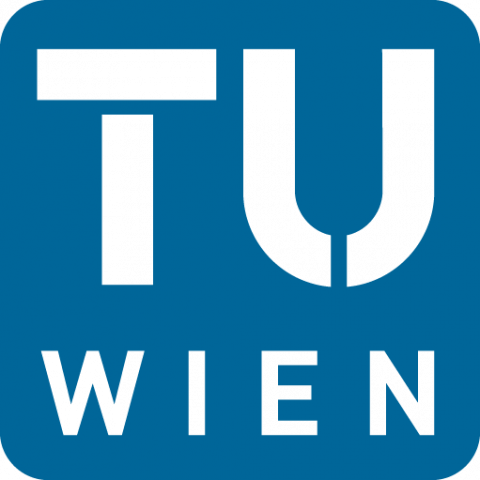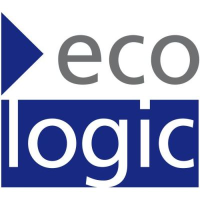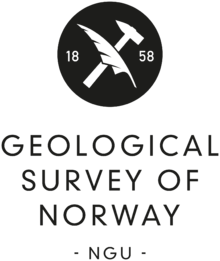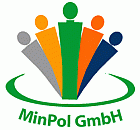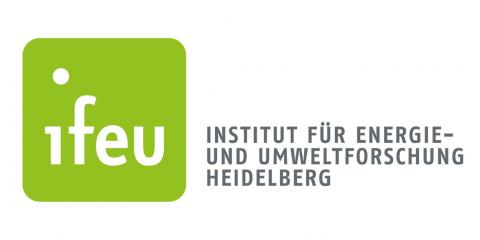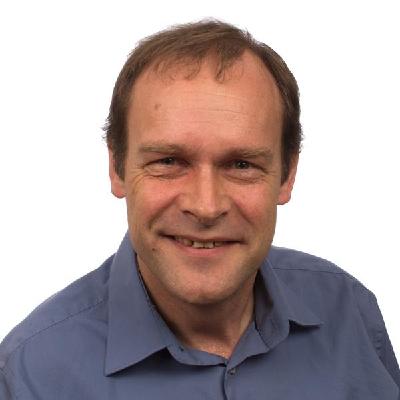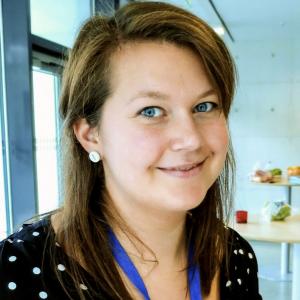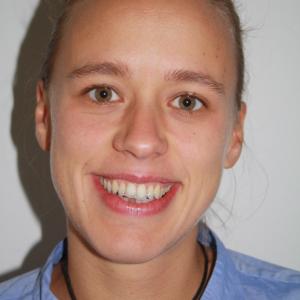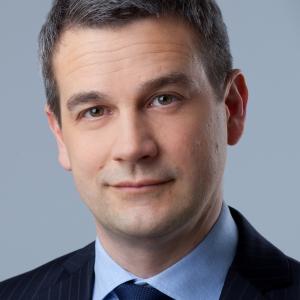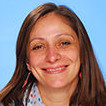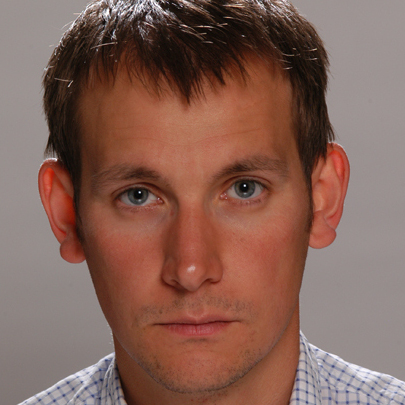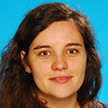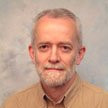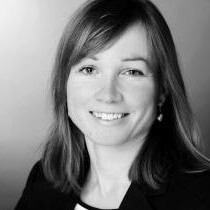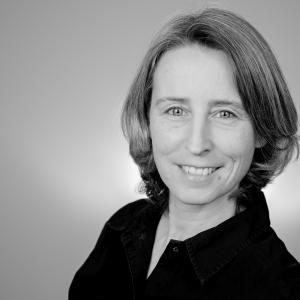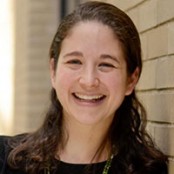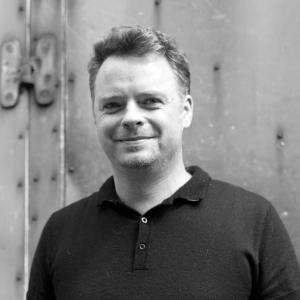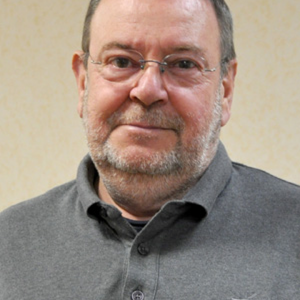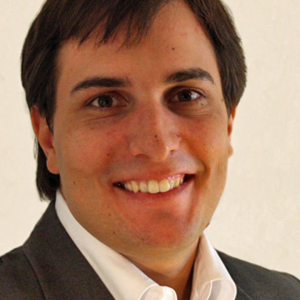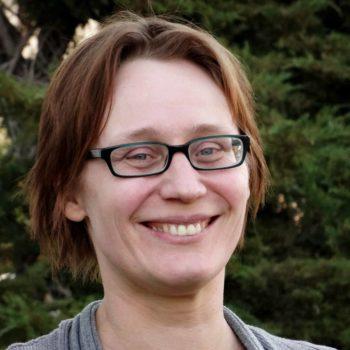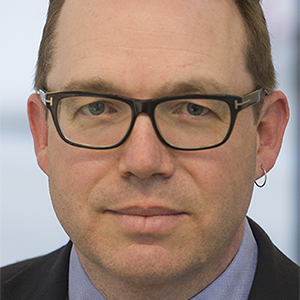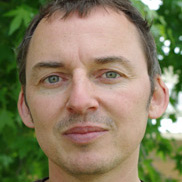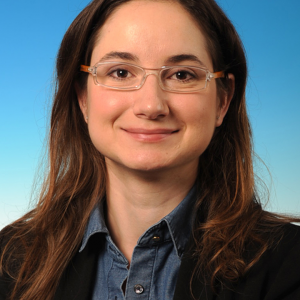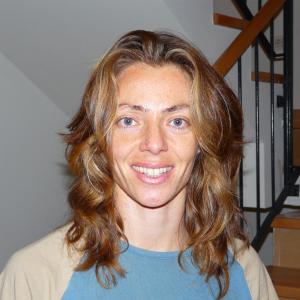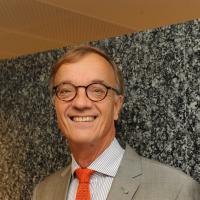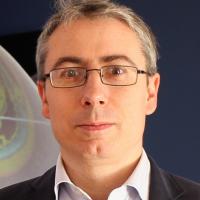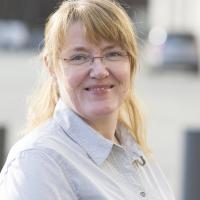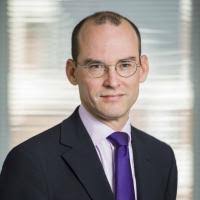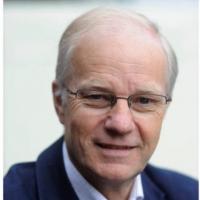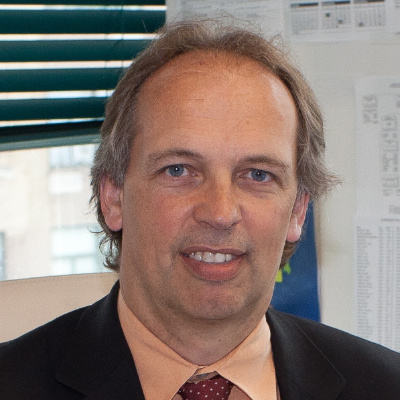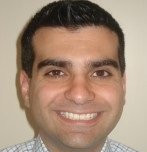Team
Institutions | Researchers | Advisory BoardInstitutions
Researchers
Prof. Daniel Beat Müller
Prof Daniel B. Müller is Professor of Industrial Ecology and Director of the Industrial Ecology Master Programme at NTNU. He holds a MSc in rural engineering and PhD in technical sciences from ETH Zurich. Prior to his appointment at NTNU, he was a post-doc at TU Delft and a research scientist at Yale University.
In addition, he was a visiting professor at the Chinese Academy of Sciences in Beijing and a guest researcher at EMPA in Switzerland. He was a founding member and first Chair of the Socio-Economic Metabolism (SEM) section of the International Society for Industrial Ecology (ISIE). He has worked closely with industry and government organizations to develop tools for forecasting demand and supply of primary and secondary resources as well as related energy use and emissions. He was a lead author of the 5th Assessment Report of the Intergovernmental Panel on Climate Change (IPCC), and he is currently a candidate for the Norwegian seat in the International Resource Panel (IRP).
Maren Lundhaug
Maren Lundhaug is a PhD candidate at the Industrial Ecology Program at NTNU. She has a Master’s degree Industrial Ecology from NTNU specializing environmental systems analysis and a Bachelor’s degree in Renewable energy from Sogn & Fjordane University College. She also works as the coordinator for the Industrial Ecology program at NTNU.
Camilla Ackermann
Camilla Ackermann is a project advisor at NTNU. She has a Master’s degree in International Business from Copenhagen Business School and has worked as a project advisor at NTNU for five years. She is actively involved in both national and international research proposal writing as well as in the execution of research projects.
Camilla has supported researchers at NTNU in over 100 proposals to the European Commission, and around 30 of the proposals have been coordinated from NTNU. She is currently en- rolled in EARMA's certification programme for Research Managers and is active within the research ad- ministrator and manager community in Norway.
Dr. Astrid Allesch
Astrid Allesch is a PhD candidate and research associate at the Institute for Water Quality, Resource and Waste Management at the Vienna University of Technology. She holds a Master of Science in Civil Engineering and Water Management from the University of Natural Resources and Applied Life Sciences in Vienna (2011).
Her research interests are waste management systems, assessment methods and material flow analysis. The main research project is focusing on the application of material flow analysis as a base for decision making in waste management.
Prof. Dr. Helmut Rechberger
Helmut Rechberger is full professor and head of the Center of Waste and Resource Management at Technische Universität Wien (TUW). He holds a Diploma in Process Engineering (1994) and a Doctorate in Waste Management and Technology (1999) both from TUW. He spent several research years at Yale University and ETH Zurich.
He has published more than 85 peer-reviewed journal articles and he is the co-author of the first Handbook of Material Flow Analysis. Under his lead the MFA-software STAN has been developed. Rechberger is the scientific director of the recently founded CEC4Europe (Circular Economy Coalition for Europe), a platform of high-level experts and stakeholders from business and leading academia to support the development of an effective and efficient Circular Economy policy for the EU that is based on scientific evidence, supporting growth, jobs and resource efficiency.
Dr. Zhi Cao
Zhi Cao is a postdoctoral researcher at SDU. His research interests mainly evolve around the material-energy-emissions nexus in the socioeconomic systems (especially energy systems and built environment systems). Specifically, his research focuses on material stocks’ roles in the socioeconomic systems, the impact of their dynamics on resource criticality and recycling, and associated environmental impacts in the lifecycle of materials.
He holds a PhD degree in natural resource management from Chinese Academy of Sciences (2017).
Prof. Gang Liu
Gang Liu is an Associate Professor of resource and waste management at SDU. He has extensive research and project experiences in material flow analysis and life cycle assessment, and applications of these tools in addressing sustainability issues in the metal and food systems. He holds a PhD degree in industrial ecology from Norwegian University of Science and Technology.
He is vice chair of the SocioEconomic Metabolism section under International Society for Industrial Ecology, and is an editorial board member of Journal of Cleaner Production, Resource, Conservation and Recycling, and Sustainability.
Prof. Henrik Wenzel
Prof Henrik Wenzel is a Professor of environmental engineering and leads the Centre for Life Cycle Engineering (previously the International Life Cycle Group) at SDU since 2007. He has authored and co-authored a grand total of around 350 publications and managed a total of around 160 research and development projects.
Teresa Brown
Teresa Brown is a Mineral Commodity Geologist working for the Ore Deposits and Commodities team at the British Geological Survey (BGS). She has amassed considerable experience in the geology, production and global trade of a wide range of mineral commodities and she is the Project Leader for the BGS’s long-running work relating to Minerals Information and Analysis, which produces the World Mineral Production publication on an annual basis.
Teresa is a co-author of two chapters of the Critical Metals Handbook and she has been extensively involved in the BGS Mineral Profile Series, authoring profiles on tungsten and uranium. Teresa was the BGS lead for the EU funded Minerals4EU project with specific responsibilities for the Mineral Statistics work-package and the development of a new, digital European Minerals Yearbook. Teresa holds an MSc in GIS.
Dr. Evi Petavratzi
Dr Evi Petavratzi is a Senior Mineral Commodity Geologist working for the Ore Deposits and Commodities team at the British Geological Survey (BGS). In this position she has actively been involved in research that explores ways to enhance the production and use of data for raw materials (primary and secondary), including working in areas relevant to material flow analysis, mineral statistics, critical raw materials and resource efficiency for the mining sector.
Evi has been involved in several related projects including MICA (Leader of the Work Package on Data for Mineral Intelligence), the current ‘Study on the review of the list of Critical Raw Materials’, the SCRREEN project, the Minerals4EU and Minventory projects. She is also responsible for developing a new research theme within BGS on the topic of Circular economy. These projects interrogate data availability on mineral resources, mineral reserves, mineral production and trade and exploration activity across Europe. Evi holds a PhD in mining engineering and is chartered from the Chartered Institute of Waste Management.
Tom Bide
Tom Bide is an experienced mineral resources geologist specialising in economic minerals, aggregate and bulk mineral resources and the UK minerals industry. His work focuses on the mapping of and spatial distribution of mineral resources.
He has had much experience with mineral resource assessments, with a focus on planning and policy and has compiled regional mineral resource maps for The UK. He also has expertise in compilation of mineral statistics through the production of the UK minerals yearbook and European funded projects such as Minerals4EU, MICA and ORAMA where he leads a work package looking at standardisation of primary raw material data across Europe.
Dr Carolin Kresse
Dr Carolin Kresse is a Mineral Commodity Geologist working for the Ore Deposits and Commodities team at the British Geological Survey (BGS).
Carolin holds a PhD in Economic Geology from the Universidade Federal de Minas Gerais (Brazil) and an MSc degree in Mineralogy from the Freiberg University of Mining and Technology (Germany). She works on projects related to primary and secondary resources, mineral statistics and critical raw materials.
Gus Gunn
Mandy Hinzmann
Mandy Hinzmann is a Researcher at Ecologic Institute, where she works on projects related to resource policy as well as biodiversity and water. One focus of her work is the analysis of policy options to enhance resource efficiency.
In the field of resource policy Mandy Hinzmann contributes to the projects Global Material Flows and Demand-supply Forecasting for Mineral Strategies (MinFuture) and Resource Policy (PolRess).
Dr. Martin Hirschnitz-Garbers
Dr. Martin Hirschnitz-Garbers is Senior Fellow at Ecologic and Coordinator of Resource Efficiency. He works on analysing policies concerning the decoupling of resource use and economic growth, on evaluating resource policy and on fostering sustainable resource management towards a Circular Economy.
In the FP7 projects DYNAMIX and COBALT, he focused on drivers for (in) efficient resource use along the value chain and the role of active involvement, capacity building and communication in making raw material management more sustainable. Martin was involved in projects dealing with waste hierarchy and the waste management performance of economic instruments. Furthermore, he was responsible for the conceptual development and documentation of a workshop by UNEP on municipal solid waste management and climate change with municipal leaders from developing countries.
Melanie Kemper
Melanie Kemper is the Head of Knowledge Management & Web Design at Ecologic Institute. She works in the domains of environmental communication, information architecture, user group analysis, internet usability, interface design, integration of multimedia content, e-learning, and infographics for knowledge transfer.
She manages projects that aim at designing and implementing knowledge bases and websites containing environmental policy information for special target groups. She provides website advice, especially on user requirements, internet usability, database content management, the structuring and visualisation of information as well as web writing. She serves as the link between the scientific and technical staff at Ecologic Institute. She also develops project websites that serve public relations as well as project management purposes.
Susanne Langsdorf
Susanne Langsdorf is a fellow at Ecologic. She works primarily on projects related to resource policy, environmental and energy governance, as well as urbanisation and transition processes. With the resources team of Ecologic Institute, she works on a German project (SimRess), which analyzes the potential effectiveness of policy measures and mixes in the field of resource policy, making use of model simulations.
Furthermore, she works on the FP7-project DYNAMIX. DYNAMIX aims to develop policy mixes for decoupling resource use and economic growth. She manages the FP7- project Post-Carbon Cities of Tomorrow (POCACITO) and took part in InContext. POCACITO will develop an evidence-based 2050 roadmap for EU post-carbon cities. InContext examined the interplay between structural conditions and internal factors for individual behavior. Susanne Langsdorf is a political scientist and holds a master's degree in International Relations.
Chiara Mazzetti
Chiara Mazzetti is Head of the Events Team at Ecologic Institute. She is responsible for the strategic development and coordination of a vast array of events.
Her primary aim as Head of the Events Team is to facilitate public involvement, stakeholder engagement, and community building. As a communication expert, Chiara Mazzetti is also responsible for the coordination of large partner networks across Europe and the management of communication activities aimed at promoting the results and achievements of Ecologic Institute’s many research projects.
Beáta Vargová
Beáta Vargová is a Visual Designer at Ecologic Institute. She focuses on editorial, user interface (UI) and corporate design as well as on motion graphics. Beáta Vargová is especially committed to visualizing information in interactive and animated infographics, videos and other multimedia formats. To provide projects with appropriate visual solutions that fit target audiences, she works with graphic programs such as Adobe Creative Suite 6. She has designed numerous infographics on the various aspects of fish protection and downstream fish migration for the German Federal Environment Agency (UBA), with an emphasis on clarity and high legibility for the user, which helps to better illustrate the content. Beáta completed her university education from 2004 to 2011 at the Masaryk University in Brno. She finished her Master's studies in media communication and sociology with a specialization in digital media within the Faculty of Social Science.
Prof. Elsa A. Olivetti
Prof. Elsa A. Olivetti is the Thomas Lord Assistant Professor in Materials Science & Engineering at MIT. She holds a BS in engineering science from the University of Virginia and PhD in materials science from MIT. Her research focuses on characterizing and understanding sustainable materials systems from an engineering and operations research perspective through the investigation of the economic and environmental implications of materials selection, manufacturing, and end-of-life decisions. She has built models of materials systems for aluminum and copper accounting for material flows, economic feedback and technical constraints.
Tom Arne Heldal
Tom Arne Heldal is the Director of the Division for Georesources at the Geological Survey of Norway. He has many years of experience in leading mineral resources research at the NGU, and is a specialist on natural stone and industrial minerals with a profound knowledge about national and international resource issues.
He has contributed to drafting the Norwegian research strategy for mineral resources, published extensively on mineral resource related issues, and is on the board of various international expert groups such as the European Geological Surveys (EGS) Mineral Resources Expert Group (MREG). He is also one of the founding members of the Permanent Body of Minerals4EU, the European minerals information network structure designed for the Raw Materials Initiative.
Mark Uwe Simoni
Mark Uwe Simoni is a researcher at the Natural Construction Materials Team in the Georesources Division at NGU. He works with mineral resource exploration, data harmonisation and resource classification and is one of the main contributors to the Swiss federal government strategy document for securing mineral resources (under review).
His previous experience includes working for the Swiss Geotechnical Commission SGTK (the national agency responsible for documenting mineral resources) and the Swiss Geological Survey, swisstopo. He has coordinated research collaboration projects with industry and national and cantonal authorities in Switzerland, both on primary and secondary raw materials. He is the Norwegian representative for the Mineral Resources Cluster of the INSPIRE Data Specification Group, NGU’s delegate in the UNFC Classification Steering Committee, and in the national Management Committee of the COST MINEA Action.
Sebastian Brazell
Sebastian graduated with a first class honours degree BSc in Computer Science at Anglia Ruskin University in July 2015. During his studies he focused primarily on software development and human computer interaction.
For his major project he investigated the application of wearable technologies in predicting health related epidemics, such as influenza. The focus on which was the current ability of wearable devices to accurately monitor and identify activity of a wearer throughout a typical day. Since graduating he has been working as a Junior Graphic Designer.
Dr. Jonathan Cullen
Dr. Jonathan Cullen is a University Lecturer in Energy, Transport and Urban Infrastructure at the University of Cambridge and a Fellow of Fitzwilliam College. He leads the Resource Efficiency Collective at Cambridge. He studied Chemical and Process Engineering at the Univerisity of Canterbury (NZ).
After 10 years working in industry and in development work in Peru, he moved to Cambridge for the MPhil in Engineering for Sustainable Development. Jonathan then completed a PhD with the title Engineering Fundamentals of Energy Efficiency before taking up the role of Research Associate. Jonathan’s research interests include whole energy systems and energy and material demand reduction. His energy research aims to characterise physical efficiency limits for energy devices, systems and services and to provide consistent frameworks for evaluating energy demand reduction options and emissions abatement strategies. Jonathan also works on material efficiency options for reducing demand for materials. This work is described in the book, Sustainable Materials: with both eyes open (available for free download).
Dr. Stéphane Chevrel
Dr Stéphane Chevrel has a an engineering degree in Mineral Resources and Industrial Minerals from the University of Orleans, France. He also holds a post-graduate certificate in Analysis and Management of Geological Risks, University of Geneva, Switzerland. He has 30 years of experience in remote sensing applied to Earth Sciences, with particular focus on environmental impacts of mining activities, mostly in South Africa, Central Asia and Europe.
He co-ordinated the EU FP5 project MINEO (Assessing an Monitoring the Environmental Impact of Mining in Europe using advanced Earth Observation Techniques), the FP6 Specific Support Action EO-LANDEG (Earth Observation Initiative in former homeland of South Africa in support to EU activities on land degradation and integrated catchment management), and the FP7 SICA project EO-MINERS (Earth Observation for Monitoring and Observing Environmental and Societal Impacts of Mineral Resources Exploration and Exploitation). I addition, he has been a Work Package leader in the FP6 BioMne project (Biotechnologies for Metal bearing materials in Europe). Currently he is the Point of Contact for the Community Activity CA-06 “Earth Observation data for managing mineral and non-renewable energy resources” within GEO, the intergovernmental Group on Earth Observations.
Prof. Dr. Eberhard Falck
Prof. Dr. W. Eberhard Falck obtained a diploma in applied geology (Dipl.-Geol.) from the Christian-Albrechts University in Kiel/Germany after studies at this university and the ETH Zürich/Switzerland. He received his PhD (Dr. rer. nat.) in 1988 from the Technical University Darmstadt/Germany with a thesis on applied hydrogeochemistry.
His professional career took him from Nottingham/UK (British Geological Survey, 1987-1991), via Bergamo and Rome/Italy (ISMES S.p.a., 1991/1992), Berlin (WS Atkins, 1992-1994, and as independent consultant 1994-1999), Vienna/Austria (International Atomic Energy Agency, 1999-2006), to Petten/NL (European Commission Joint Research Centre, 2006-2009). From to 2009 to 2015 he has been associate professor of environmental sciences at the Université de Versailles St. Quentin-en-Yvelines (UVSQ). He continues to be a visiting professor at the Ecole de Mines in Nantes (France). His teaching covers a wide range of subjects, such as the interaction between environmental sciences and society, natural risks and their management, and the management and remediation of mining legacies. He has also worked as project manager for the Minerals Industry Research Organisation (MIRO) in the UK, and as expert for the IAEA in Vienna, the OECD-NEA in Paris, the European Environment Agency in Copenhagen, and the European Parliament in Brussels. While his original field of work was the safe management of radioactive waste, he has been actively contributing now for more than 20 years to the long-term management of (uranium) mining legacies. During this time stakeholder and sustainability issues have become increasingly a focal area. This is reflected in a considerable number of (technical) guidance books he edited and the policy support provided to inter alia the European Commission and the European Parliament. Most recently he acted/acts as a project manager or co-ordinator for a number of European Commission projects, including EO-Miners, SUSTAMINING, I2Mine, INTRAW, MICA, MINATURA2020, SCRREEN, and MinFuture.mining legacies.
Blažena (Hamadová) Wertichová
Blažena (Hamadová) Wertichová is educated in geological engineering at Faculty of Mining and Geology at VŠB - Technical University in Ostrava, Czech Republic. Since 2016, she is associated with MinPol, Agency for International Minerals Policy. She has been involved in several Horizon 2020 projects such as MINATURA 2020, MICA, FORAM, and MinLand. Her research area is focused on mineral policy, mining legislative, securing the access to mineral deposits based on land-use planning, sustainable minerals supply, etc. Currently, she is doing a Ph.D. at VŠB-TU Ostrava.
Dr. Diego Murguía
Dr. Diego Murguía holds a PhD in Environmental Engineering (Dr.-Ing.) and has over 10 years of international working experience at the intersection of the fields of resource governance, mineral and land use policies, industrial ecology, social and environmental impact assessments and sustainability reporting associated with the (large-scale) metal mining sector.
He has worked as Social Consultant for various international consultancy companies, and more recently, as Research Fellow at the Wuppertal Institute for Climate, Environment and Energy where he pioneered research in the direct land-use footprint of the mining sector. He currently works as Research Associate for MinPol and as Associated Researcher at the School of Management of the Technical University of Munich.
Prof. Dr. Günter Tiess
Associate Prof. Dr. Günter Tiess is managing director of MinPol, Agency for international Mineral Policy (SME). An economic geologist by training (PhD, ‚Habilitation’), he has more than fifteen years of experience in research focused on international mineral policy, mining and sustainability (Montanuniversitaet Leoben [2002 – 2014]; Technical University of Ostrava [since 2015]; since 2011 in close co-operation with the Department of Mining Engineering, Indian Institute of Technology, Kharagpur.
He is involved in the EIP on Raw Materials Initiative (OG 3 and 5), and ERECON (European Rare Earths Competency Network) Initiative on rare earth minerals (chair of WG1 (mining and processing). He is coordinator of the H2020 project MINATURA2020 (mineral deposits of public importance, 2015-2018) and of the Study on ‘Legal framework for mineral extraction and permitting procedures for exploration and exploitation in the EU-28’ commissioned by the European Commission (2016). He was coordinator of the FP7 project SNAP-SEE (2012-2014, www.snapsee.eu).
Chloé Devauze
Chloé Devauze, Consultant at Deloitte Sustainability, holds a Master’s degree in Agronomy and Environmental sciences from AgroParisTech (France), with a specialisation in sustainable development, biodiversity management and sustainable land use planning. She currently works on the RMSA project and on the “Study on the review of the list of Critical Raw Materials”.
She has recently worked on a study for the EC DG ENTR on a Data inventory for a full Raw Material System Analysis (RMSA) and Sustainable Consumption and Production/ Consumer behaviour (DEFRA, 2014). Prior to joining Deloitte Sustainability, Chloé carried out several studies in the field of ecosystem and natural resources management, sustainable land-use planning, and stakeholders consultation. At Deloitte Sustainability, Chloé provides consulting services in Sustainability for private and public sectors. Her methodological skills are resource efficiency, sustainable production and consumption policies, and stakeholders’ consultation. Her fields of expertise are sustainable natural resources, sustainable production and consumption, biodiversity and ecosystems services, climate change adaptation, and land-use planning.
Dr. Mariane Planchon
Dr. Mariane Planchon, Manager at Deloitte Sustainability, holds a PhD in Ecotoxicology and Geochemistry from the Institut de Physique du Globe de Paris (Paris, France) and an MSc/Engineer degree in Chemistry from the Ecole Nationale Supérieure de Chimie de Paris (Chimie Paris ParisTech, France) with a specialisation in Materials.
Prior to joining Deloitte Sustainability, Mariane worked as PhD researcher for CEA Saclay and IPGP for three years, on issues related to ecotoxicity of nanoparticles, environment and physico-chemical colloids characterisation. She also participated in research projects at the Museum d’ Histoire Naturelle de Paris linking medicine and green chemistry. Her technical expertise includes nanotoxicity, colloids characterisation, environmental toxicity assessments, data collection, literature synthesis and scientific redaction. Mariane works on several projects linked to raw material criticality and uses in the European industry. She recently finalised a French research project that assess the uses, flows and stocks of Rare Earths in the EU to establish Material Flow Analysis, that requires intensive data mining and expert consultation. She is also involved as principal consultant in the European study “Study on Data Inventory for a Raw Material System Analysis: Roadmap and Test of the Fully Operational MSA for Raw Materials” (RMSA) to perform the quantitative inventory of uses and flows of 21 critical raw materials in the EU. She has also led a new study aiming at elaborating an inventory of all critical materials used in the European Defence sector for the JRC. Mariane’s mother tongue is French and she is fluent in English. She also has good knowledge of Spanish.
Dr. Monika Dittrich
Dr. Monika Dittrich is project leader in ifeu’s team Resources and Chemicals. She holds a Diploma in Geography from Phillips University Marburg and a PhD in natural sciences from University of Cologne, both Germany. After studies, Mrs. Dittrich worked five years in the German technical development agency (giz) in Germany, the Dominican Republic and Mexico. Thereafter she researched on physical trade at Wuppertal Institute, Germany, and developed a methodology for an efficient use and quality improvement of UNComtrade date for physical assessments of global trade.
She was a lead author of the UNEP International Resource Panel’s report on trade and contributed the trade part to UNEPs IRP assessment of global material flows (forthcoming). Currently, she leads a research project on material demand projections of German economy and a feasibility study on resource efficiency measurement in the federal state of Baden-Württemberg. She contributes to further projects of the team in the field of material management and resource efficiency (Germany, India) and material flow accounting (Eurostat).
Seiji Hashimoto
Seiji Hashimoto has been a Professor at Ritsumeikan University since 2011, after he was appointed as a Senior Researcher at National Institute for Environmental Studies, a Visiting Associate Professor at The University of Tokyo, etc.
He studies assessment methodologies and system design for sustainable resource and waste management, looking at whole system comprehensively from extraction of resources through disposal of wastes. He was a Lead Author of IPCC Fourth Assessment Report, and is a member of UNEP International Resource Panel.
Prof. Steve Hatfield-Dodds
Professor Steve Hatfield-Dodds is one of Australia’s leading researchers on sustainability and climate change policy. He has worked for more than two decades at the intersection of research and public policy, with recognised expertise in adaptive governance, integrated modelling and assessment, ecological economics, and the science-policy nexus.
His work focuses on understanding and addressing the distinctive challenges of crafting efficient and worthwhile policy responses to climate change and sustainable development within real world democratic institutions and social processes. Prof Hatfield-Dodds leads CSIRO’s integration science and modelling initiative, and was the lead author of the recent Australian National Outlook report and associated paper on the cover of Nature. He is also responsible for developing a new CSIRO initiative on enhancing the value of science.
Dr. Heinz Schandl
Dr. Heinz Schandl is a senior science leader at the CSIRO and leads policy research and modelling to support sustainable consumption and production, sustainable materials management and circular economy policies and practices. He was a co-author of the Australian National Outlook based on a multi-model framework to analyze different scenarios for natural resource use, emissions, employment and economic growth which was recently published in the premier journal Nature. He pioneered a new indicator of material footprint of consumption published in PNAS.
He is an adjunct professor at the Graduate School of Environmental Studies at Nagoya University, Japan. Dr Schandl is an expert member of the United Nations Environment Programme (UNEP) International Resource Panel (IRP) where he leads the work stream for global material flows and resource productivity. He led the assessment study on global material flows which established an authoritative dataset for global material extraction at a high level of detail for primary materials. He leads a modelling study of the UNEP IRP undertaken for the G7 leadership creating scenarios for global material use under different assumptions of climate and resource efficiency policies. Through his participation a working relationship with the UNEP IRP will be established. Dr Schandl has led international research teams for the European Commission, the OECD, the UNEP, the United Nations Economic and Social Commission, the World Bank and the Asian Development Bank. He has been the expert member for assessing vulnerabilities and risks of natural resources for ESCAP in the process of regional integration in Asia and the Pacific and a coordinating lead author for resource efficiency for the regional report of the sixth Global Environmental Outlook (GEO6). He is an expert member of the United Nations Commission for Regional Development (UNCRD) regional 3R Forum for Asia and the Pacific and his research has informed policy formulation in Japan, China and Australia.
Marta Iglesias Émbil
Marta Iglesias Émbil has carried out her career in chemical engineering at Universidad de Oviedo, and holds a master’s degree in Environmental Studies with a specialization in Industrial Ecology at Universitat Autònoma de Barcelona.
Presently she is a PhD student in the program of Environmental Studies. She also works in the Environmental Affairs Product department of SEAT, affiliated company of the Volkswagen Group in Barcelona.
Gara Villalba
Gara Villalba is associate professor of the Department of Chemical, Biological and Environmental Engineering of the Autonomous University of Barcelona. Her bachelor’s degree is from the Massachusetts Institute of Technology (1998), and her PhD from the University of Barcelona (2003), both in chemical engineering.
She dedicates her research to the study and optimization of resource metabolism, a broad multidisciplinary area where she applies her chemical engineering skills to industrial ecology methods such as Material Flow Analysis and Life Cycle Analysis. The applications of this systems-focused research are diverse and multidisciplinary, such as: assessing the sustainability of new technologies that make use of non-renewable and scarce metals; quantifying the material, energy and water consumption at urban scale to establish baseline GHG emission accounting protocols; waste-to-energy optimization and evaluation for improved municipal solid waste management.
Dr. Joanna Kulczycka
Dr. hab. Joanna Kulczycka, associate professor, is head and founder of Department of Strategic Research at MEERI, author of over 200 publications including the 1st book about LCA in Polish, 1st Polish Minerals Yearbook. She serves as expert of EU H2020 SC5 Advisory Group for Societal Challenge 5 'Climate Action, Environment, Resource Efficiency and Raw Materials.
Joanna is Member of Polish Academy of Science Committee for Sustainable Management of Raw Materials and president of Polish Center of Life Cycle Assessment (PCLCA). In Scopus database her Hi index = 6, there are 51 documents, and number of citation = 160.
Dr. Jan Weinzettel
Dr. Jan Weinzettel is a senior researcher at the Environment Center. Jan Weinzettel has worked at CUEC since 2007 with a two year break in 2010-2012, when he was employed as a researcher at NTNU in Trondheim. During his work, Jan Weinzettel has gained an extensive expertise in input-output analysis (both multi-regional and single region), LCA, and hybrid IO-LCA methods.
His interests cover industrial ecology including the flows of materials through the global economy and related environmental impacts. He applied hybrid IO-LCA of a similar concept of the Eurostat RME model on the case of the Czech Republic before the Eurostat model was established and calculated RMC indicator for the Czech economy. This study became a background of the Eurostat model later on.
Advisory Board
Magnus Ericsson
Magnus Ericsson, is a veteran observer and analyst of global mining, his interests going back to the mid 1970s. He was one of the co-founders of the Raw Materials Group (RMG), which developed Raw Materials Data containing information on practically every mine in the world.
Since 2009 he is a consulting professor of mineral economics at Luleå University of Technology, Sweden. At present he is active in a Stockholm based independent network of advisors to the mining cluster.
Dr. Constantin Ciupagea
Constantin Ciupagea is Head of Unit for Land Resources at the Directorate General Joint Research Centre (JRC), within the European Commission, managing projects in support to EU policies. He is also the JRC Director-General’s Sherpa for the European Innovation Partnership on Raw Materials.
The most recent areas of research and policy support were: Raw Materials - policy support and monitoring indicators, coordinating the management of the Commission’s Raw Materials Information System (RMIS); Soil and Land-use policies and research – providing evidence-support, assessments and management of knowledge for soil contamination, desertification, monitoring indicators, and linkages to CAP, SDGs and climate change; Ecosystem Services Mapping and Assessments and Natural Capital Accounting. Before joining the European Commission in 2010, he was the director of the Institute of World Economy (IWE) of the Romanian Academy.
Between 2006 and 2008 he acted as State Counsellor for Economic Policies at the Chancellery of the Prime Minister of Romania, while between 1994 and 1996 he was the economic counsellor of the President of the Romanian Parliament's Chamber of Representatives.
He has a PhD in macroeconomic and international trade modelling since 1997.
Dr. Dominic Wittmer
Dominic Wittmer is Scientific Officer at the Unit for Land Resources at the Directorate General Joint Research Centre (JRC) within the European Commission. He is responsible for the Monitoring of the European Innovation Partnership (EIP) on Raw Materials and has a significant role in the Competitiveness Cluster of the Raw Material Scoreboard. He is also contributor to the EU Raw Material Information System and the advancements related to its data management.
He has analysed material flows of various inorganic resources on European and national level in support of raw material policy development. After his university education, he worked as consultant on the decontamination of brownfield sites. Prior to his current position, he worked as researcher at the Wuppertal Institute and the German Federal Institute for Geosciences and Natural Resources (BGR). He has a graduate degree in Geology from Johannes Gutenberg University Mainz and received a PhD in Technical sciences from ETH Zurich by his analysis and modelling of anthropogenic copper stocks and flows in Switzerland.
Dr. Karen Hanghøj
Dr Karen Hanghøj is the CEO at EIT RawMaterials. Karen holds a PhD in Geology from University of Copenhagen, and has worked extensively with research on geological processes in the lower crust and mantle and their associated mineral deposits.
She has spent more than ten years working in the US as a Research Associate at Woods Hole Oceanographic Institution and as a Research Scientist at Columbia University and has furthermore worked as a consultant to the minerals exploration industry for more than 20 years. Before joining EIT RawMaterials Karen was head of Department of Petrology and Economic Geology at the Geological Survey for Denmark and Greenland (GEUS) and involved in several EU - funded mineral raw materials projects and networks.
Johannes Drielsma
Mr. Drielsma is the Deputy Director of Euromines. An environmental engineer by training, he spent the first 10 years of his career gaining industrial experience in mining of raw materials as well as research and product applications. He has been representing Euromines since 2005.
Sigurd Heiberg
Sigurd Heiberg is Project Director of PETRAD (Internationale Programme for Petroleum Management and Administration), focusing on geological resources, including energy resources.
Sigurd has spent most of his working life in Government and industry working on petroleum resources management and strategy, both as Deputy director of resource management responsible for development and production at the Norwegian Petroleum Directorate, as Petroleum Exploration advisor to the Minister of Water Energy and Minerals of Tanzania and as a member of Statoil’s Corporate strategy team. He chaired the Oil and gas reserves committee of the Society of Petroleum Engineers (2000-2001), the UNECE Expert group on resource classification (2002-2009) and the Bureau of the UNECE Intergovernmental Committee on Sustainable Energy (2010-2012).
Sigurd has engaged in education by helping the NPD build PETRAD, a facility develop management skills in developing countries. He has been a lecturer at the MIT Sloan Executive Education and at the University of Stavanger. He was a guest editor with MIT Professor Donald Roy Lessard of “Innovation in oil and gas through partnering”, a special volume of Energy Strategy Reviews.
Sigurd holds a BSc) degree from the University of California, Los Angeles ‘67, and a SM degree from the Massachusetts Institute of Technology ’69. He has received formal management training at IMD (International Management in 1981 and High Performance Boards in 2011).
Dr. Christian Hagelüken
Dr. Christian Hagelüken is Director of EU Government Affairs at Umicore, with a focus on raw materials related topics. Between 2003 and 2011 he was head of Business Development in Umicore’s Precious Metals Refining business unit. Before that, he had held various management positions in the precious metals department of Degussa AG.
Christian has over 25 years experience in (precious) metals recycling and sustainable metals management and has made numerous contributions to professional books, journals and conferences. He represents Umicore in related policy initiatives, associations, expert groups and scientific panels, among others the UNEP Resource Panel, the European Innovation Partnership on Raw Materials, the German Acatech working group on resources for energy applications, and the German National Platform for Electromobility.
Christian holds university degrees in mining engineering and industrial engineering from RWTH Aachen, Germany, where he also received his Ph.D. in 1991.
Ronald Jansen
Ronald Jansen is part of the senior management team of the United Nations Statistics Division (UNSD) in New York. He is leading the thematic area of measurement of international trade and economic globalization, including tourism statistics, and coordinates the management of the global statistical standards and compilation guidance in these areas. His branch maintains the UN Comtrade database.
He represents UNSD in a number of intergovernmental bodies dealing with a variety of topics, such as integrated global business and trade statistics, the classification of broad economic categories, statistical business registers and tourism statistics. Recently he took responsibility for leading the Division’s work on the use of Big Data for official statistics, which is an emerging field to support the data demands for the monitoring on the 2030 agenda for sustainable development.
His educational background is in Statistics and Psychology, which he studied at the University of Groningen in the Netherlands, where he graduated in 1984. Thereafter, he taught Statistics and did his own research at the University of Nijmegen obtaining a PhD in mathematical modelling of human information processing in 1990. Ronald joined the United Nations Statistics Division (UNSD) in June 1990 and worked mostly in the field of international trade statistics serving a few years as chief of the capacity development section.
Nancy Snyder
Nancy Snyder is a Statistician in the Trade Statistics Branch of the United Nations Statistics Division (UNSD) in New York. She is responsible for the collection of official statistics of international trade in goods and services and their dissemination in the UN Comtrade database.
She also provides compilation guidance in these areas and conducts research on emerging topics, such as the measurement of global value chains, linking trade and business statistics and the use of Big Data for official statistics. Prior to her current position, Ms. Snyder analyzed the potential economic effects of U.S. trade policies at the U.S. International Trade Commission. Ms. Snyder has a graduate degree in Economics from George Mason University.
Nedal T Nassar
Nedal T Nassar is the chief of the Materials Flow Analysis Section at the National Minerals Information Center, U.S. Geological Survey
Employing a systems perspective, he and his team examine the global stocks and flows of nonfuel mineral commodities at each stage of their life cycle to gain a more complete understanding of their status above ground. They analyze trends and examine concerns regarding foreign mineral dependency. They develop supply and demand scenarios to better anticipate potential shortfalls. They collaborate with other USGS Mission Areas to provide a more complete understanding of the mineral supply situation. And also collaborate with and provide analysis for other federal agencies to help them achieve their missions. In short, their work provides decision makers with the information necessary to ensure that the United States has a reliable supply of mineral resources.

